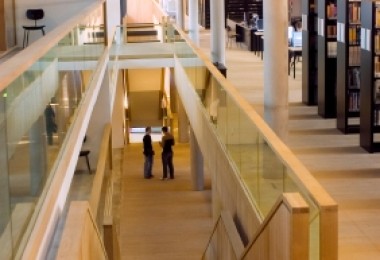Translation Romani has decided to maintain use of the word Romani in all language versions of this website, inclusively and in reference both to the language and people of all the diverse ethnic communities throughout the world, i.e. Roma, Sinti, Manuš, Calé, Romanichal, Kalé, and many others. Please read the important notes from our translators for explanations and other translations currently in use locally, nationally or regionally.
Close this box.
The Romani language has been spoken, to greater and lesser degrees, within families and communities since departure from India 1000 years ago. Historically, folklorists and researchers in contact with Romani communities devised some of the earliest word lists, vocabularies, grammar descriptions and dictionaries, published in various languages for a variety of dialects. More comprehensive dictionaries compiled by Romani themselves have recently begun to emerge, for example through Magoria Books publisher in Canada.
The language is now taught in different settings throughout the world: university programs, primary and secondary school classes, cultural and community centers, workshops and summer camps. Pedagogical materials exist in Romani and in translation. They are increasing in number due to escalating interest in learning the language, a fundamental aspect in the expression of pride in Romani identity.
Educational institutions, schools and cultural organizations where the Romani language is taught:
* L`Institut National des Langues et Civilisations Orientales (INALCO) -- Paris, France
* University of Texas at Austin -- Austin, United States
* Univerzita Karlova -- Prague, Czech Republic
* Pécsi Tudományegyetem -- Pecs, Hungary
* Universitatea din Bucureşti -- Bucharest, Romania
* Sveučilište u Zagrebu -- University of Zagreb, Croatia
* AMALA -- Valjevo, Serbia
Primary and Secondary Schools
Nová škola -- Prague, Czech Republic
Gandhi Gimnázium -- Pecs, Hungary
Some references and publications used to teach Romani include:
Bakker, Peter, and Kyuchukov, Hristo (2003), Publications in Romani,
useful for Romani language education. Preliminary and Experimental Edition. October 2003. Available online.
Barthelemy, André (1982), Źanés Romanés? Manuel de Conversation Tsigane (Dialecte Kalderaš), Paris: A. Barthelemy.
Daróczi, József Choli (2002), Zhanes Romanes? Cigány Nyelvkönyv, Budapest.
Đurić, Rajko (2005), Gramatika e Rromane Čhibaki, Belgrade: Otkrovenje.
Gila-Kochanowski, Vania de (2002), Précis de la langue Romani littéraire, Paris: L`Harmattan.
Hancock, Ian (1995), A Handbook of Vlax Romani, Columbus: Slavica Publishers, Inc.
Lakatos, Szilvia (2005), Igei Táblázatok. A Lovári Nyelv Tanulásához, Pécs: Pécsi Tudományegyetem.
Lee, Ronald (2005), Learn Romani. Das-dúma Rromanes, Hertfordshire: University of Hertfordshire Press.
Matras, Yaron (2002), Romani. A Linguistic Introduction, Cambridge: Cambridge University Press.
Ministerului Educaţiei şi Cercetării din România and Gheorghe Sarău (2005), I Rromani Ćhib Thaj Literatùra, Manual pentru clasa 1-IV-a, Bucharest: Editura SIGMA.
Pobożniak, Tadeusz (1964?), Grammar of the Lovari Dialect, Prace Komisji Orientalistycznej (Polska Akademia Nauk. Komisja Orientalistyczna) nr. 3., Krakow: Panstwowe Wydawn Naukowe.
Proctor, Edward (2008), Gypsy Dialects. A selected annotated bibliography of materials for the practical study of Romani, Hertfordshire: University of Hertfordshire Press.
Queraltó, Alexandre (200X), Curso de Romaní (dialecto de los Kalderaš)
Council of Europe Instruments for Teaching and Learning Romani (Kalderash, Usary), 2008.

Sar mai (Kalderash)
Sar san tu?|Sar san?|So ćere(s)h? (Gurbeti)
So kere? (Xoraxane)


